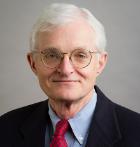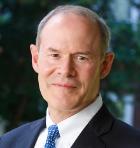The coronavirus pandemic caught the business world by surprise, but the catastrophe might force companies to face a crisis that has been unfolding in plain sight: climate change.
We asked faculty members affiliated with the Business and Environment Initiative at Harvard Business School how the COVID-19 outbreak might change the way companies think about sustainability. Here’s what they said:
Michael Toffel: Companies might prepare better for big disruptions

I hope that the pandemic will increase companies’ attention to managing disruption risk. Investing in greater resiliency in their operations and supply chain will not only better enable them to manage future pandemics, but also some of the disruptions that climate change is bringing like more intensive storms, droughts, and flooding.
I also hope that this pandemic serves as a broader wakeup call to citizens and political leaders about the importance of government effectiveness, the need for scenario planning, and the importance in investing in more resilient infrastructure—steps that would help all of us be better prepared for pandemics and climate change.
Michael Toffel (@MikeToffel) is the Senator John Heinz Professor of Environmental Management in the Technology and Operations Management Unit, and Faculty Chair of the HBS Business and Environment Initiative.
Rebecca Henderson: Short-term fears might guide decision-making

In the short run, COVID-19 changes everything, just because nearly every company is so stressed. In the long run, I hope that companies will emerge from the crisis with a renewed appreciation for the importance of paying attention to the potential for catastrophic risks such as climate change, and for the importance of building government capacity equipped to deal with major public crises.
But I’m very much aware that if we’re in recession at the end of the crisis and companies are even more focused on the short term, business leaders may choose to reduce their commitment to environmental and even social sustainability.
This is a moment in which leadership can make an enormous difference. If there’s a way to build collective commitment to continuing to move forward I think we’ll emerge in much better shape than if every firm focuses only on its own concerns.
Rebecca Henderson (@RebeccaReCap) is the John and Natty McArthur University Professor at Harvard University, where she has a joint appointment at the Harvard Business School in the General Management and Strategy units.
Joseph B. Lassiter: Companies will realize their vulnerability

COVID-19 points out that even the most sophisticated companies and governments are extremely vulnerable to unanticipated shocks. Corporate sustainability programs will need to be reimagined to include resiliency programs that anticipate the impacts of long-term climate change, short-term weather extremes and the reactions—“under stress”—of host governments on company operations.
Joseph B. Lassiter is the Senator John Heinz Professor of Management Practice in Environmental Management, Retired.
THE CORONAVIRUS CRISIS
More Business-Related Pandemic Coverage from Around Harvard and Beyond
- COVID-19 Business Impact Center (Harvard Business School)
- How to Make Furloughs More Humane (Harvard Business Review)
- Coaching Your Team Through Uncertain Times (Harvard Business Review)
Read COVID-19 coverage from Working Knowledge
John D. Macomber: Safety will become a competitive advantage

Companies who serve patrons in person—whether it’s restaurants or airlines or ballparks or schools or museums—will now need to compete based on who can deliver the safest perceived service environment, in the face of ongoing public health threats from COVID-19 and from the next pandemic.
Sustaining their business viability post-COVID will demand more resources and a higher carbon footprint per patron, and also result in less attention to companies’ pre-COVID objectives with respect to their governance or social goals.
John D. Macomber (@cleantechcities) is a senior lecturer of business administration in the Finance Unit.
Ashley V. Whillans: Increased climate awareness might lead to action

In an initial set of interviews, I have found that employees are expressing increased concern about the carbon emission cost of constant corporate travel. In another preliminary survey, employees are broadly shifting their values towards self-transcendence: They are increasingly aware of how their actions and the actions of their companies are impacting the planet.
These tentative findings suggest that COVID-19 is making climate increasingly a top-of-mind issue. Now, it is up to corporations and policy makers to translate this attentional focus into actions and habits that stick—by using strategies that combine environmental and financial sustainability.
Ashley V. Whillans (@ashleywhillans) is an assistant professor of business administration in the Negotiation, Organization and Markets Unit.
Nien-hê Hsieh: A time for corporate introspection?

I am not sure if it will, but it definitely should.
Nien-hê Hsieh is a professor of business administration and a Joseph L. Rice, III Faculty Fellow in the General Management Unit.
About the Author
Danielle Kost is a senior editor at Harvard Business School Working Knowledge.
[Image: HRAUN]
Related Reading
- Fighting Climate Change Requires a New Capitalism
- How Investors Are Sizing Up Climate Change’s Risks—and Opportunities
- Even for Non-Believers, These Are the Next Steps on Climate Change
What do you think business leaders will learn from the COVID-19 crisis?
Share your insights below.
